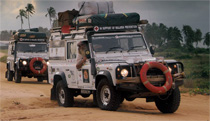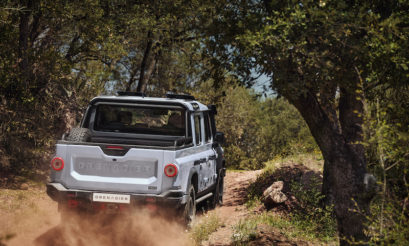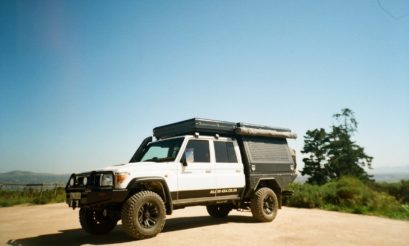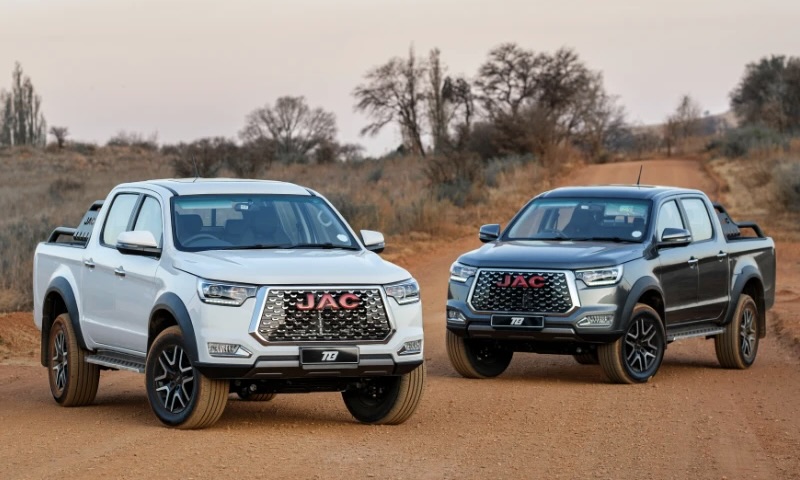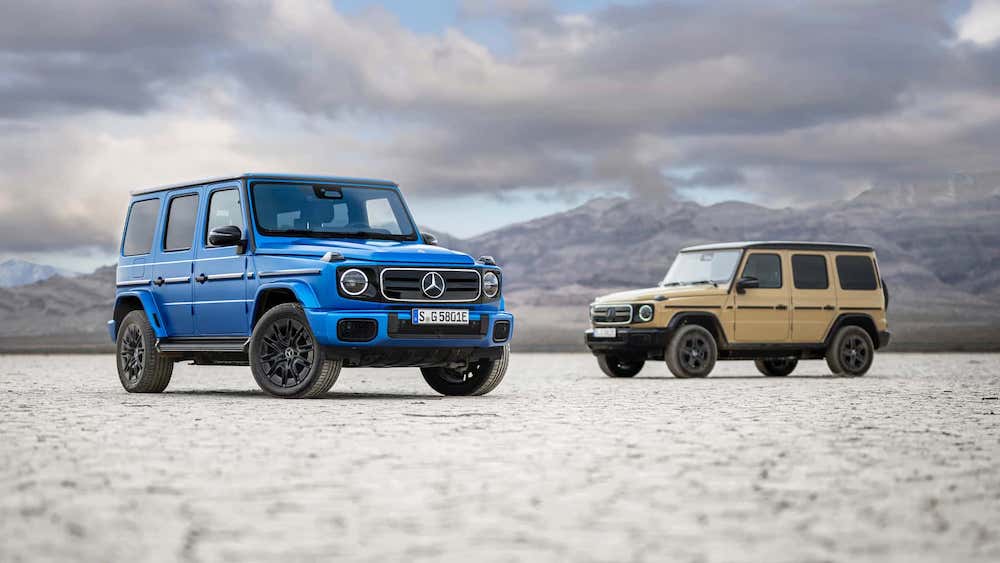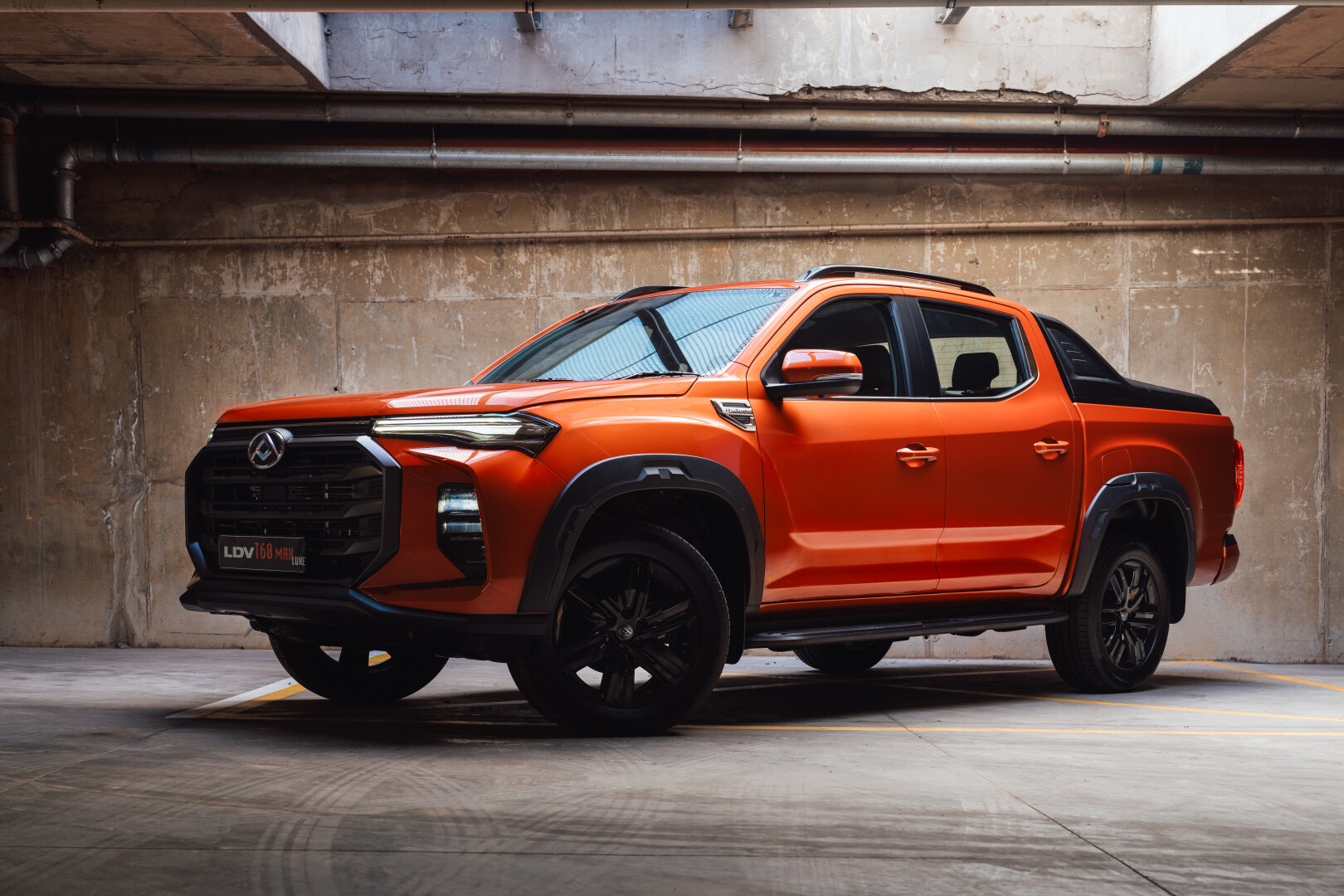On 27 April, a record 347 Land Rovers escorted the Holgate party out of the Mother City on the way to one of the most challenging expeditions of their lives – the Africa Outside Edge Expedition. Nic Williams joined the group on the leg through Benin, Togo and Ghana
Text: Nic Williams
Photography: Rob Till and the Kingsley team
On August 25, Kingsley Holgate and his adventurers scrape through the border into Benin – battered and broken.
This hulk of a man hasn’t minded lying face-down in the dust before Nigerian royalty. He hasn’t minded the huge effort of distributing up to 3000 mosquito nets, or the fatigue of four months of living on the Outside Edge of Africa since leaving Cape Town on April 27.
But the all-pervasive air of violence his team encountered in Nigeria is a madness that has sapped their emotions. AK47s have been stuck in their faces, they’ve been guarded by armed militias, banging their guns on the bonnets of ordinary Nigerian motorists to force them out of the Land Rovers’ paths in a crazy race through sprawling Lagos.
“It’s blown us… our minds are spinning,” Kingsley admits.
Ross has contracted malaria. He lies slumped in the back of his Land Rover, in agony, delirious.
On Sunday morning, the driver of the third Land Rover in the convoy, Bruce Leslie, goes down with a bug – white as a sheet.
But after four days of R&R, and a shot of Captain Morgan rum, they’ve bounced back, ready for their next three countries: Benin, Togo and Ghana.
Benin, named after the bay on which it lies, the Bight of Benin, is an impossible union of almost 50 different linguistic and tribal groups, an ex-French protectorate granted full independence in 1960. Its past reputation mainly concerns its elite corps of women fighters, and human sacrifice – usually beheadings.
It is a tiny country, about 100km wide and 400km long, and Kingsley’s party arrives in the de facto capital, Cotonou. In the Fon language, the name means the “The Lake of the Dead”.
But the Land Rovers find its streets bursting with an insane life and are quickly engulfed in mosquito-like swarms of motorcycles. Traffic is bedlam, potholes are craters. Motorbikes transport timber, steel and massive bundles headed for the market. A baby falls off the back of a scooter, is hauled back up by its mother and the bike speeds off in a cloud of two-stroke smoke.
And there’s not a motorcycle helmet in sight.
Cotonou offers respite – a little oasis of calm, a beautiful little Venice, the stilted village- above-the water of Ganvié.
Today home to more than 20 000 people, it began as a refuge from slavers who were too afraid, or couldn’t be bothered, to pursue the locals into the marshy lake village.
On a quiet Sunday morning, pure theatre unfolds before the Holgate party’s eyes. They watch awestruck as dugout canoes cruise past, market boats laden with tomatoes, buckets of fresh water from a borehole, fresh fish, and worshippers travelling to and from church.
On the down side, raw sewage plops directly through the floorboards into the lagoon, making one wonder about the tilapia we’re served for lunch. Despite this nagging thought, it’s delicious. And, more importantly, the nets Kingsley hands out at a local hospital are gratefully received by delighted pregnant mothers.
The Holgates swing back to the coast, following the paths of millions of slaves to the Gate of no Return, from where they boarded ships, set for brutal new lives in the Americas.
Today, Kingsley finds the coastline still packed with muscle-bound black bodies on boats – but, this time, their faces are wrapped with expressions of joy.
These are the subsistence fishermen whose villages line the coast of Benin, Togo and Ghana – “Trek fishermen”, as South Africans would call them, who smash through the surf in giant dugouts, circle out to sea and return 1km up the beach. A daily ceremony erupts as the nets are hauled in to the sound of singing and drums, before the catch is shared communally.
And neither have these communities forgotten their religious roots. This is the world capital of voodoo…
Kingsley watches with morbid fascination as the plethora of deities are explained to him in a secret forest near the village of Ouidah.
“Many of us are Christians by day but practise voodoo by night,” a guide happily explains.
Several days later, in Lome, Togo, Kingsley visits the largest fetish market in West Africa.
A recipe is explained: “Take sixteen small black gall bladders from the forest duiker, 16 lambs’ gall bladders and the head of a pangolin, grind together in a small bowl and burn over a fire until it becomes a black powder. Sprinkle it over the girl’s food… and she will love you forever,” the proprietor promises.
Some sights are too much for some in the party. A live puppy – not for long – and a freshly- skinned dead cat bring tears to the eyes.
Bruce, a former game ranger and antipoaching unit operative, is exasperated by the sight, and the likely fate of a large tawny eagle.
But within 24 hours, across another border, Ghana offers the polar opposite. Instead of urban decay and dead animals, Kingsley finds paradise… on the Volta delta.
“This used to be known as ‘The White Man’s Grave’,” a local explains, because few Europeans survived the region’s killer, malaria. Centuries later, Kingsley is here to help save the locals from the same disease.
A narrow and graceful wooden ferry carries the Holgate party across the water between palm-fronted islands. The boat slides up onto a beach, to be met by villagers. From a grass kitchen hut wafts the delicious smell of grilled shrimps, freshly delivered by the boys in their dugouts. A carpenter carefully repairs a wooden doorway, using timber from the little island, and the villagers distil a type of spirit from cane sugar for their income.
The delta is an unspoiled natural gem – but there are hints of development. Kingsley prays the Volta’s natural integrity will remain.
Approaching Accra, they hand out hundreds more nets, welcomed by a parade of traditional ceremonies, and kick off a soccer match in his party’s honour.
Accra – the capital of Africa’s first democracy – is a city fraught with contradictions. Multinationals’ warehouse line the route to the airport, neon lights beam “Game” and “Woolworths”. But other aspects of life in the city are crumbling.
Jamestown was once the British colonialists’ main precinct, on the beach with hotels and busy trading stores. Now the streets are lined with filth.
Beaches as beautiful as Llandudno or Clifton are strewn with rubbish tumbling down the cliff-side.
But Kingsley chooses to look for hope. “Accra looks like it’s about to boom,” he congratulates a Ghanaian optimistically.
The main beach road is under construction. And the party revels in the electric energy on one of the beaches, where fishermen play soccer with astounding skill, the tide lapping at their feet. Their families lounge in the shade of their decorative fishing boats.
The old prison looms above and locals warn that the entire area is unsafe – that Kingsley should beat a hasty retreat.
But no-one in the party feels threatened. South Africans could learn a lot about brotherly love, many comment.
On the streets, children see the Holgate hair and beard and bolt indoors, screaming: “God is here!”
Despite Accra’s energy, Kingsley and Ross explain, “We’re not big on cities.” They long for the vast open spaces, tiny villages and bumpy roads.
In Benin, the Holgates had met up with three fellow travellers who left Cape Town a month before them – three mates from Cape Town with an africansurfer.com banner, spending their days surfing and lazing in hammocks.
As a welcome (and perhaps punishment too!), they are invited to a Kingsley beach braai and treated to a tipple from “The Tank” – the rum-filled long-range tank beneath Kingsley’s Land Rover. They roll back to their sleeping bags in the small hours.
Bruce is the driver of “The Stomach”, the 130 Land Rover that carries the convoy’s food supplies. With a steel-lined stomach of his own, he is also the party’s official taster, sampling meats of undetermined origin… like the freshly butchered bush meat they were offered in the forests of Gabon.
“Hey, if it’s got enough hot peri-peri sauce, that’ll kill anything,” he says.
In Accra, the three Land Rovers are attended to by Land Rover South Africa’s technical head, Rory Beattie, who is as astonished as Kingsley and Ross at how little damage the vehicles have suffered, considering the beating they have been subjected to over the past five months.
The roof racks have been seriously overloaded, a winch is broken – but that’s it, the Landies are ready to push on to new dangers, like Sierra Leone…
On the eve of their departure westwards, Ross catches a glimpse of a CNN news bulletin. The military in Sierra Leone has been rocked by allegations of widespread rape. The soldiers are unlikely to be in a good mood when Kingsley arrives.
The mood may be volatile, even ugly. But then the Holgates have seen the ugly, and also the good side of Africa since leaving Cape Town five months before.
One memorable place was the Sperrgebiet, the forbidden coast, with special permissions from De Beers and the Namibian ministry of Environment and Tourism. “It’s been an unbelievable privilege. Old German diamond mining ghost towns, wrecks in the mist, tens and thousands of sea birds and Cape fur seals.
“Sliding the overloaded expedition Landies down the slip-faces of some of the highest dunes in the world and then clawing our way up, sometimes digging, pushing and winching and always with engines screaming to the summit of the next one – it was quite an experience,” says Kingsley.
Then there was Annelie Muller’s birthday celebration. “She’s a boeremeisie from the Oos-Kaap, and it’s her first expedition. She’s doing great, learning to drive the Landies and live in the bush. The sun is up, Renoster coffee on the boil and for breakfast, pawpaw and big fat yellow bananas – our first fresh fruit in weeks. We sing Happy Birthday.”
And the malaria day in Luanda at Centro de Saude Boavista, a downtown clinic in the centre of the Angolan city in which mosquito nets were distributed to pregnant mums and babies. This very successful event went out on local radio, TV and press – the story of a South African-led expedition caring for the people of Africa.
Crossing the mouth of the Congo, the three trusty Landies are on a leaking wooden barge called the Tumi Mi Tangwa. “She rolls like a cork in a bathtub each time a swell comes in from the Atlantic,” recalls Kingsley.
“Still over 20 of the 26km to go. Then the Port of Banana comes into view. We throw anchor. With the help of 87 laughing, joking, singing Congolese, and thick hardwood planks supported underneath by 45-gallon drums, the three Landies roll onto terra firma. Later we sing and dance with relief.”
And what about crossing the border from the DRC into Cabinda? “If you ever get to this spot you’ll know it’s the backside of the world. We sit with the flies and the litter. Six local piss cats watch a French soap opera at full volume – the speakers distorted like hell. ‘Go back to Moanda, back to the DRC, get a visa from the Cabinda consul,’ says an arrogant little bloke in a red T-shirt.
“But,” we stutter. “Immigration in Soyo told us we would be okay with our existing Angolan visas.” The finger comes out. ‘You go back to Moanda.’ So we’re in bloody noman’s- land, stamped out of the DRC, but no entrada into Cabinda. Soldiers with AKs are everywhere, protecting the oil riches.
“Finally, we are able to buy visas at 78 US dollars each, and 20 hours and a hundred metres later, the boom at Posto Fronteiro at Yema, gateway to Cabinda, is lifted.”
Grandfather Kingsley, son Ross and grandson Tristan agree: “It’s been a visual bombardment – like turning the pages of a book too fast to see the pictures,” Kingsley says. “But I’m so overwhelmed by the warmth of Africa.”
As they forge westward and northwards, they trust that the mother continent will continue to cradle them. Kinsley looks across the fire and gives Ross a wink.
“Somehow we will have to make a plan. That’s the nature of following the outside edge.”
